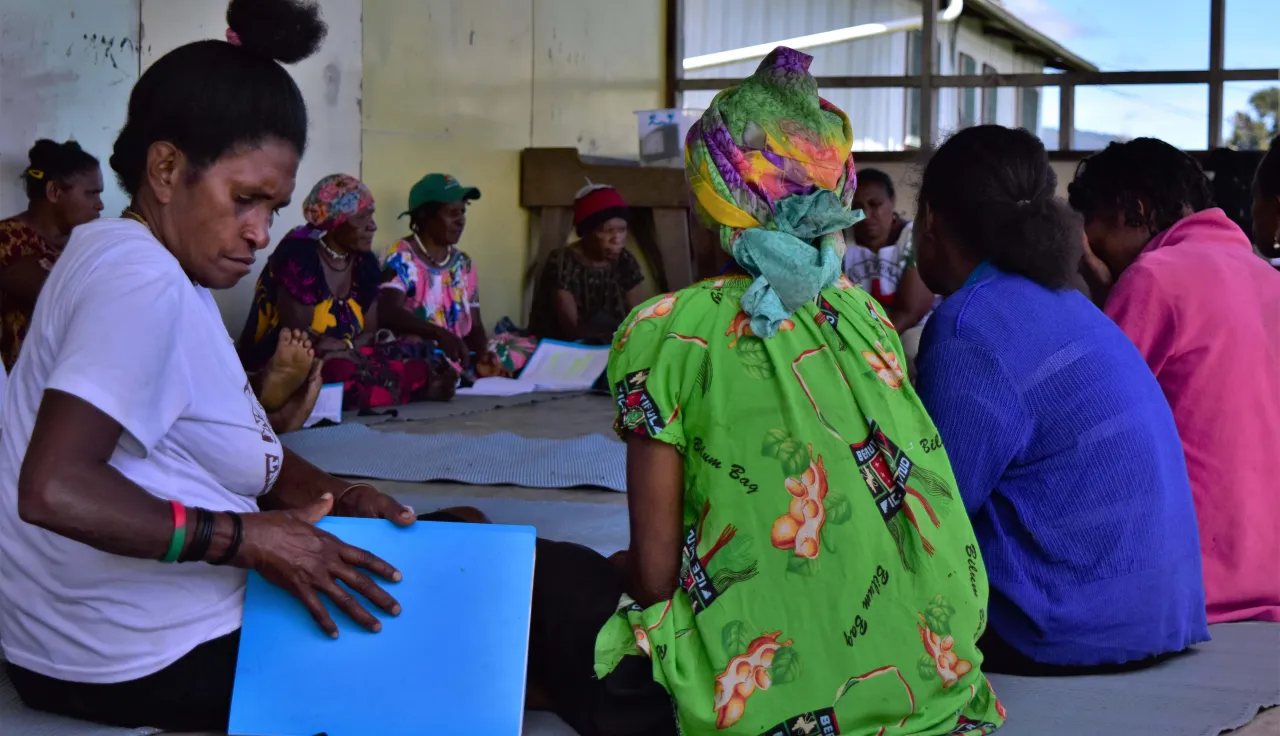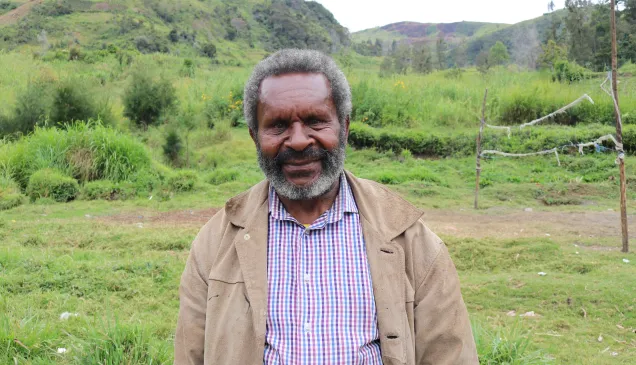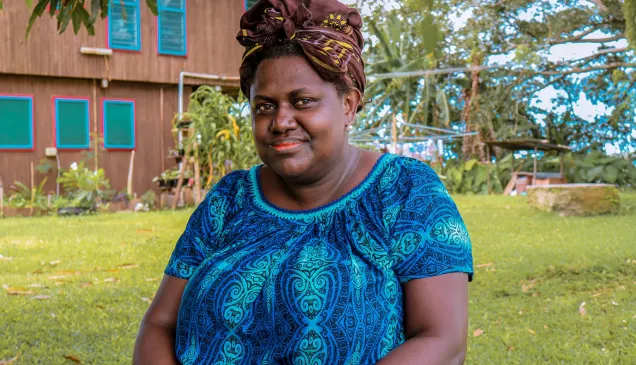PNG: Support group sessions break silence on mental health needs, empower communities

An open hut at the Pureni Health Centre in Hela, Papua New Guinea (PNG), has a cheerful buzz as a group of women gather and greet each other.
Some have walked for two hours across the green hills, but they look excited to see each other. They wipe off their sweat, dust themselves, settle down on mats laid out on the wooden floor and start singing a familiar song. As the voices blend, the women soak in the comfort of friendships and the safe space that they have created. For the next two hours they take a break from their long list of household chores and instead talk about experiencing violence of various kinds, their struggle with trauma and the coping mechanisms that have helped them. They listen to one another, grieve together, comfort and encourage each other, and learn how they can better handle their distress.
The support group sessions, or "school" as the women call it, are empowering communities in PNG as they help people affected by violence (including sexual and gender-based violence) to identify signs of psychological stress, create the space to talk about it and find ways to support one another in the journey towards healing. Started in 2019 by the International Committee of the Red Cross (ICRC) under its mental health and psychosocial support (MHPSS) programme, more than 30 support groups have been organized across Southern Highlands, Enga and Hela provinces for more than 400 women of six communities till May 2023.
The sessions were developed as part of our response to the humanitarian consequences of tribal fighting in PNG. It is particularly important here because the mental health system is very weak or even non-existent in most of the provinces
Strengthening the informal mental health system
Stressing upon the correlation between violence and mental health issues, Christine Berger, the ICRC's MHPSS delegate based in PNG, says that according to research at any given time around 22 per cent of people impacted by conflict suffer from mental health conditions. "Without awareness people are unable to identify the signs of distress and don't know how to talk about it or the need to reach out for help," says Berger.
The support group approach goes beyond individual counselling, which is limited in reach, and instead looks at capacity-building of the informal mental health system of the community in a sustainable way. "Most participants have to start with learning to identify the signs of stress. Then they move on to using positive coping mechanisms that gradually improve their daily functioning. When they see changes in their own lives, they go back to their communities and families and share what they have learnt to help others," says Piam.
➡️Reduce people’s stress
➡️Improve ways of coping
➡️Help to manage daily tasks pic.twitter.com/j2N8FNc3mx— ICRC Papua New Guinea (@ICRC_PNG) April 26, 2023
Mothers turn into facilitators and stars of the programme
The chain begins with the facilitators who are selected from the village health assistants and are trained to lead conversations related to mental health and psychosocial support by following a manual of seven sessions. "They are the real stars of this programme. When I approach them, they often express eagerness to help but also share many apprehensions about their capacity to lead sessions. They tell me that they are only 'ordinary mothers' from the village who take care of their own gardens and pigs and cook for their families. 'We may faint if we have to stand up and talk to other women', they say. But I reassure them that they can do it," shares Piam. Through regular supervision and coaching, Piam has seen the facilitators transform into confident group leaders who are respected in their communities and sought-after for counselling others.
Talking about support group sessions held in Hela, Piam says there were seven facilitators who started taking the sessions as a team in 2021. "A year later, we assessed them and split the team so that three or four facilitators led groups of 12 participants each. It was a major milestone for them. I am really grateful for their commitment and the extra time they put in to prepare for the sessions and to be trained," she says.
Piam also talks about how the community no longer sees the facilitators as ordinary mothers but as people to reach out to for encouragement, help and support. "When someone loses their husband, people inform the facilitators to talk to the grieving woman. Sometimes they are called to mediate and help couples that are having trouble or when parents are struggling with their children. This is how the informal mental health system is strengthened," she says.
Participants' stories of change prove impact
The support group sessions begin with laying the ground rules that participants will join all seven weekly sessions and that the experiences others share will stay within the group. "Each session covers a different topic, such as issues that the community faces, identifying stress and positive coping mechanisms. I have seen people even change physically in the course of these sessions," she says.
The impact of the sessions is measured in both quantitative and qualitative ways. "The participants fill out monitoring forms, providing us with quantitative data about improvements in their distress level, functioning, vulnerabilities, etc. But we also hear beautiful stories such as one of the participants telling us that her body feels lighter, and she has been thinking clearly since the group sessions. Another participant, whose son was killed in a tribal fight, said she is coping better with her son's death and dealing with her emotions. This qualitative data is particularly important for gauging the impact of the programme," says Berger.
For the way forward, Berger and Piam want to see the seven facilitators for Hela lead sessions in pairs. "We also want health facilities to eventually integrate the sessions in their outreach programmes for the communities and initiate male support group sessions," says Piam.
SUPPORT GROUP HIGHLIGHTS
Number of groups: 31
Sessions conducted: 193
Participants: 408
Facilitators trained: 33
(Figures for 2019 - May 2023)



